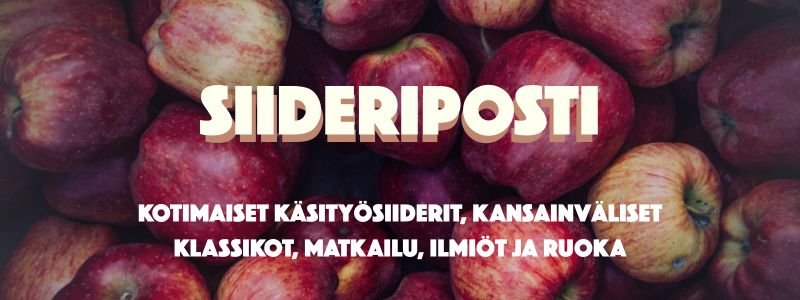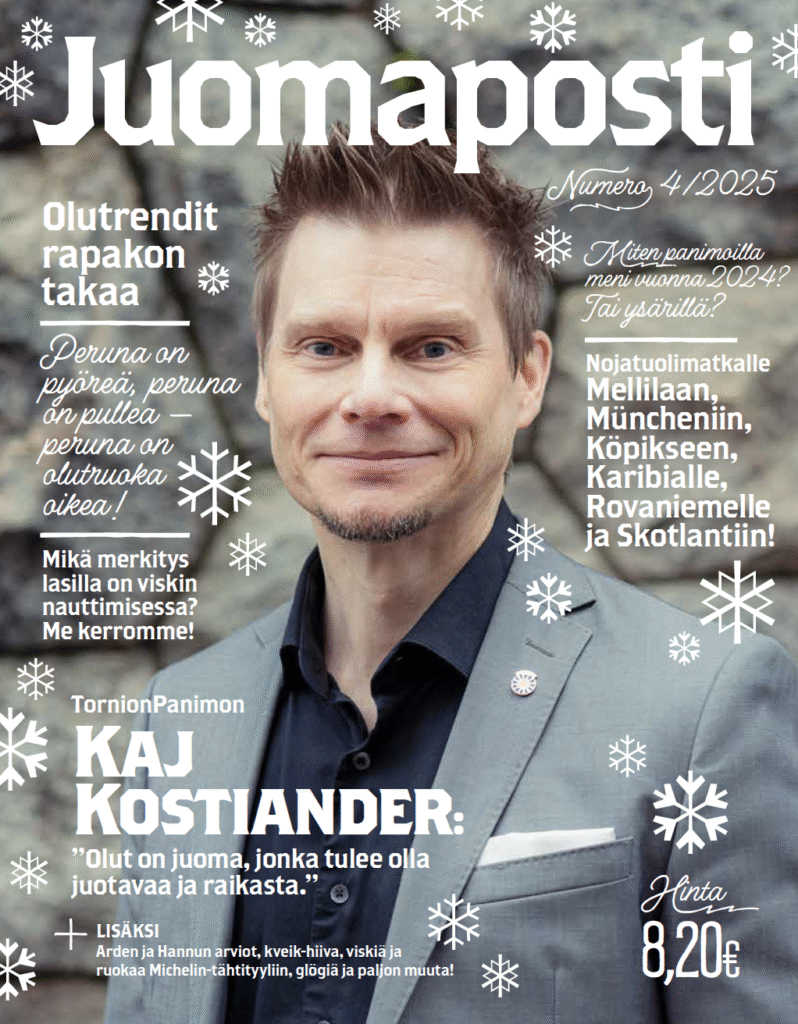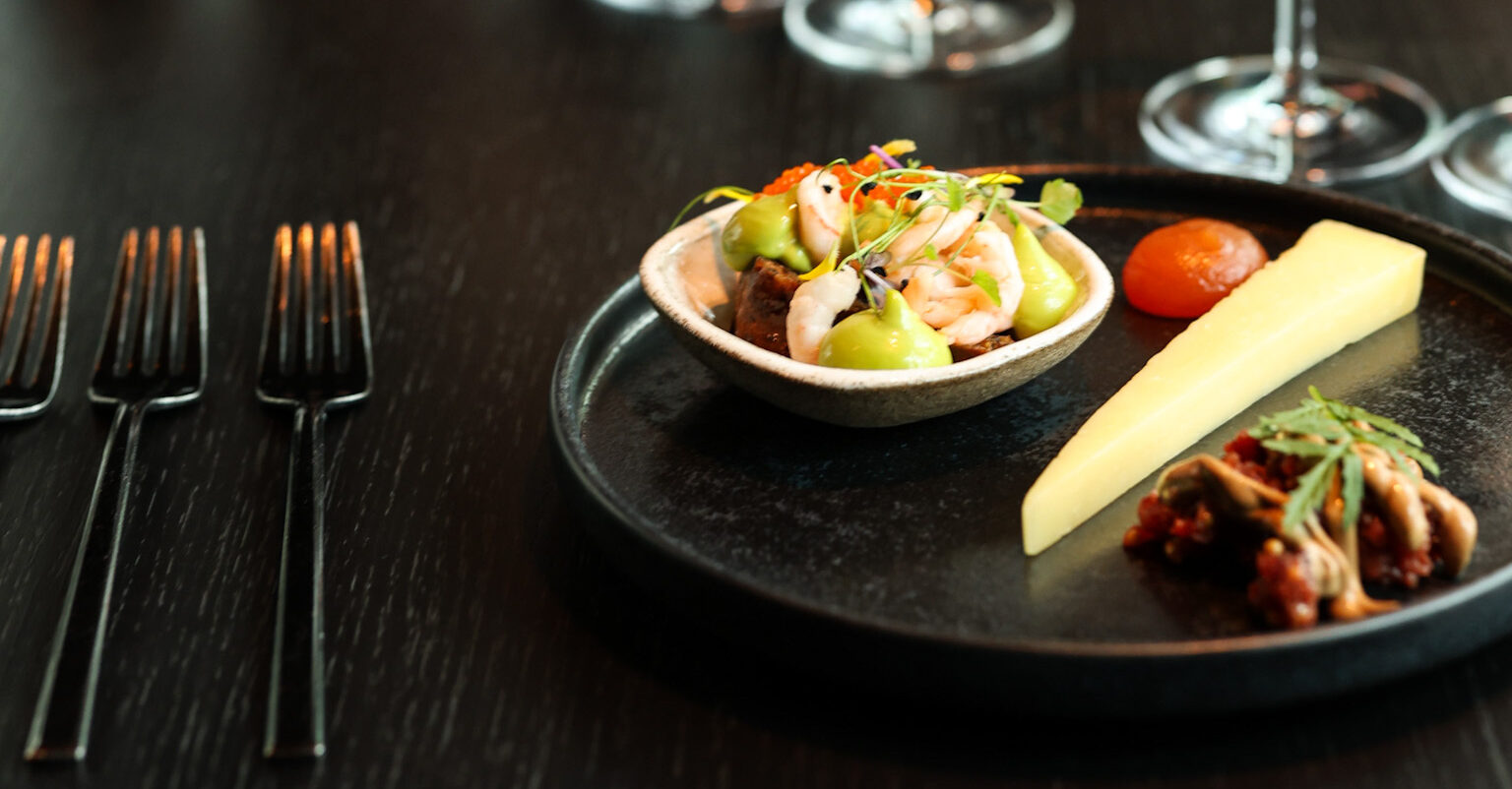Kotiolutmaa: Islanti
Islanti, kotioluen kielletty maa.
Islanti, tunnettu tulen ja jään maana. Islanti on saarivaltio Atlantin valtameren pohjoisosassa ja tunnetaan monipuolisesta luonnostaan, geisiirit, tulivuoret ja vesiputoukset ovat kiehtoneet ihmismieltä loputtomuuksiin asti mutta mitä tiedetään paikallisesta kotiolutkulttuurista?
Kotiolutta on saarella aina tehty mutta vaikeaa se on ollut. Islannin lukuisiin ihmeellisyyksiin luonnon ohella kuuluu myös se että oluen myynti kiellettiin vuonna 1915 ja se oli pannassa vuoteen 1989 asti. Olutkulttuuri on kuitenkin näistä pimeistä ajoista lähtenyt huikeaan kasvuun ja panimoiden määräkin on saarella jo yltänyt kolmenkymmenen puolelle. On aivan käsittämätöntä että tällaisestä oluettomasta ajasta on vierähtänyt vasta kolmekymmentä vuotta. Halusimmekin saada vähän tarkempaa tietoa silloisista ja nykyisistä oloista ja otimme yhteyttä paikallisiin.
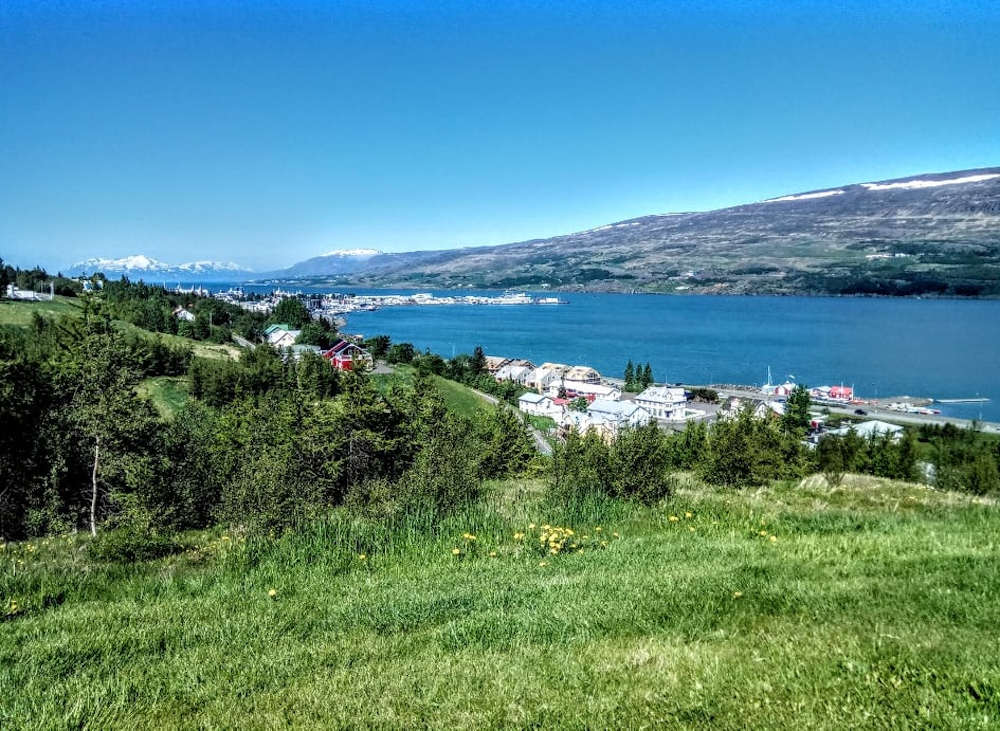
Ensimmäisenä Kotiolutposti olikin yhteydessä islantilaiseen panimo Einstökiin. Einstök-panimo sijaitsee Akureyrissä, Pohjois-Islannissa ja haastattelimme panimon toimitusjohtajan Gudjon Gudmundssonin kuullaksemme kuinka kotioluella meni ennen vanhaan.
Einstök haastattelu
Kotiolutposti: All alcoholic beer was banned in Iceland until year 1989, what kind of a beer culture there was before that?
Gudmundsson: “Yes indeed, beer sales in Iceland were banned from the prohibition years until March 1, 1989, which in turn is a big day in Icelandic history and celebrated every year. You could still buy beer up to 2.25% alc vol in stores. If you wanted a higher strength beer you needed to travel abroad (you could still buy some at the arrival duty free at the airport) or buy it from smugglers who made good money smuggling beer, mostly on ships. Towards the end of the prohibition some restaurants had started to make what was called ”Beer-like” or ”synthetic beer”, basically fortified low alc beer. Tasted horribly, but people tried! Funnily enough during most of the prohibition years you could still buy hard spirits in the Monopoly stores. The reason stated for prohibiting beer was that drinking problems would increase if people head access to beer. Of course what happened was that the drinking culture improved a lit as people could much better control their drinking. “
Kotiolutposti: Was homebrewed beer illegal back in time?
Gudmundsson: “Homebrewing has basically always been illegal in Iceland, but traditionally left alone as long as people are only brewing for personal use. Strange indeed, but as the law has been very conservative this has been the case”
Kotiolutposti: Does Einstök brewery work with homebrewers or gypsy breweries?
Gudmundsson: “In some cases yes. We have done some analyses now and then for home brewers, some of the more exotic ingredients we have as well as advise.”
Kotiolutposti: Care to share any beer recipe for Kotiolutposti followers ;)
Gudmundsson: “Our policy has unfortunately been to not sharing those yet, but I hope that changes very soon. Will let you know when that happens :) “
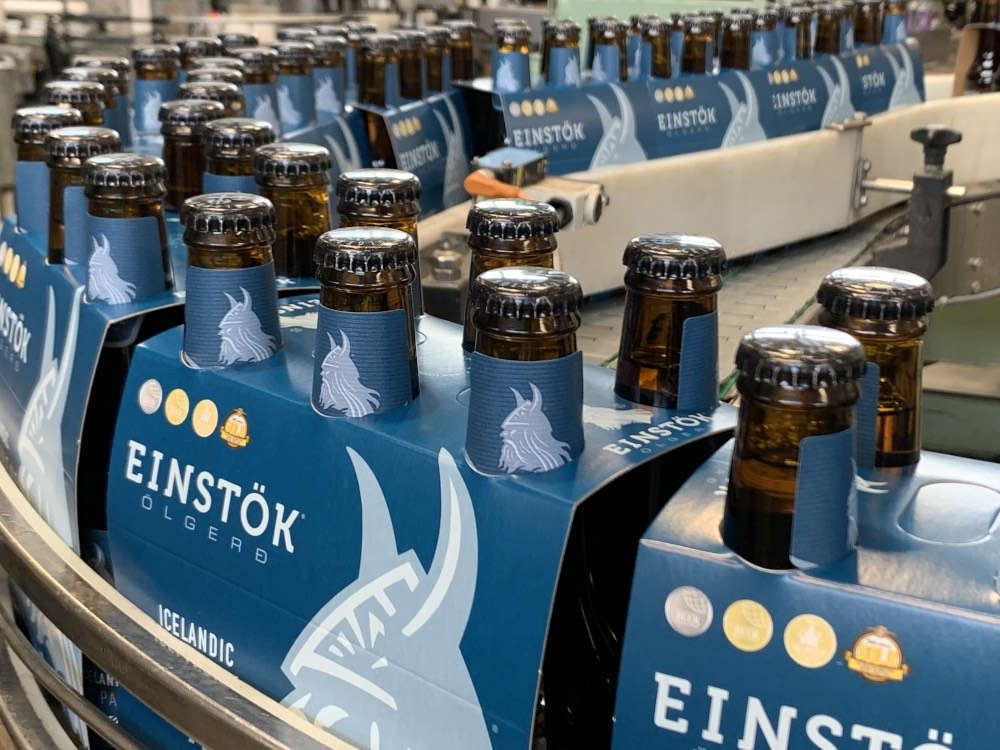
Einstök panimon pullotuslinja
Mielenkiintoisia vastauksia mielenkiintoisesta maasta ja avasikin hieman sikäläistä kulttuuria. Se kertoo jo jotain oluen valtavasta voimasta kun kieltolain purkamisesta saadaan aikaan kansallinen juhlapäivä. Meillä sentään keskiolut vapautettiin ruokakauppoihin 1. tammikuuta 1969 mutta ei jäänyt meillä samanlaiseksi juhlapyhäksi.
Toisin kuin useat pienpanimot, Einstök ei ole lähtenyt kotipanemisesta liikkeelle vaan alusta asti on käytetty koulutettuja panimotyöläisiä. Emme kuitenkaan halunneet jättää tiedustelua vain kaupallisen panimon varaan vaan otimme yhteyttä myös islantilaiseen kotipanijaan, Ásgeir Ingvarssoniin.
Kotipanija haastattelu: Ásgeir Ingvarsson
Kotiolutposti: How long have you been doing homebrewing? Are you all-grain brewer or malt extracts guy?
Ingvarsson: ”I have been brewing since December 2014 and I am an all grain brewer. I own a Grainfather G30 and a Blichmann Breweasy 10 Gallon systems that I bought here in Iceland”
Kotiolutposti: Homebrewing is still illegal in Iceland, how can there be any homebrewers at all?
Ingvarsson: ”Yes, it is illegal but as long as you are not selling it or distributing it you are pretty much left alone. You are allowed to brew beer but it cannot be stronger than 2.25%. We have an Homebrewers Orginization here which are pushing the government to change the legislation. There are homebrewers shop here where you can shop equipment, grain, hops and all of that.”
Kotiolutposti: Do you think homebrewing has gotten more bigger in Iceland and did corona-virus affected popularity?
Ingvarsson: ”It has grown in the 3-4 years. In last April, Icelanders were encouraged to stay at home and work from home if they could so many used the opportunity to brew while working from home.”
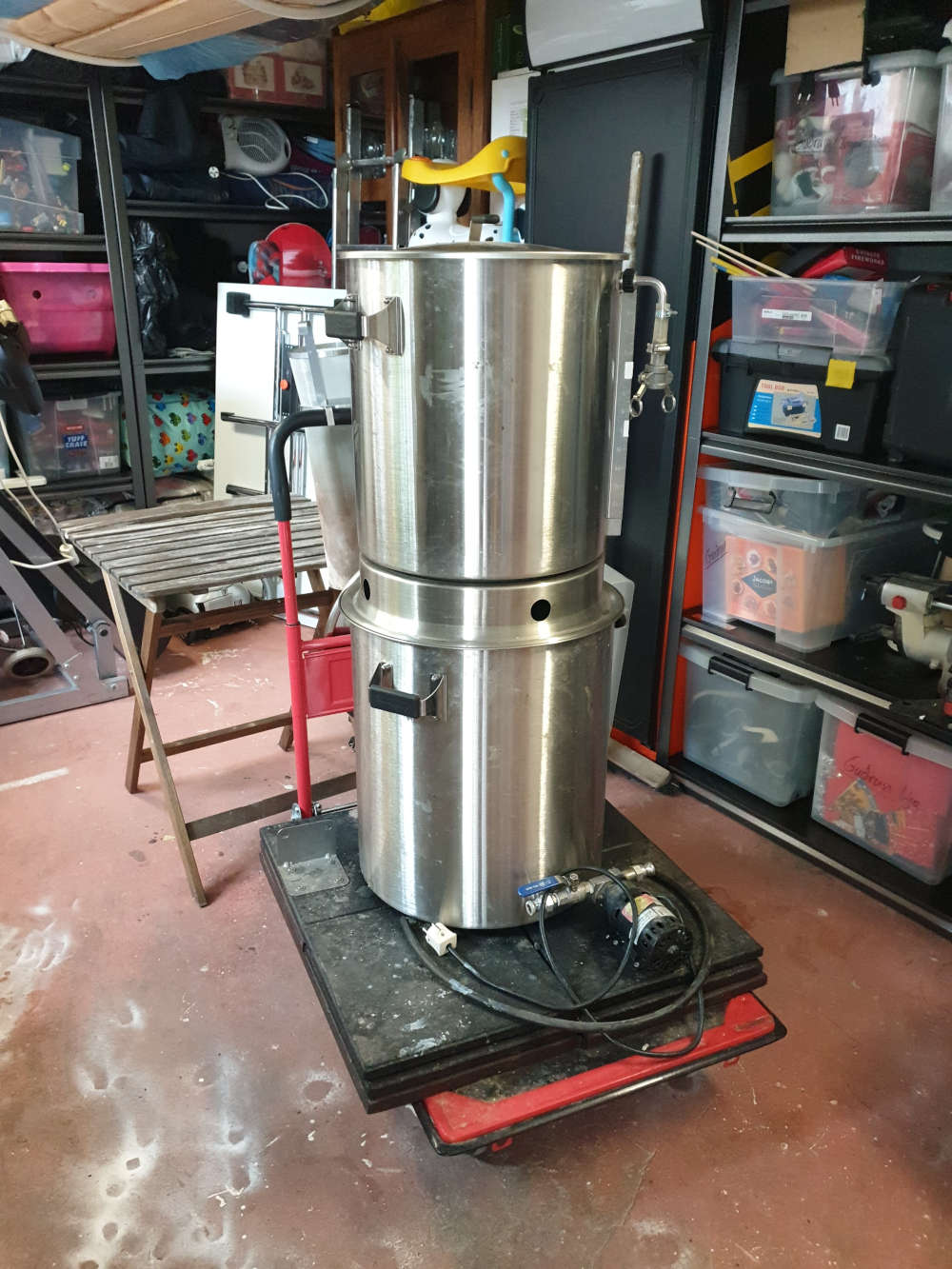
Islantilaisten taidonnäyte kotiolut laitteistosta.
Kotiolutposti haluaa ehdottomasti kiittää molempia haastateltuja, oli hienoa saada paikallista näkemystä menneeseen että vallitsevaan olutkulttuuriin. Toivottavasti tulevaisuudessa nähdään kotiolutharrastuksen helpottuminen ja saadaan uusia hienoja oluita maailmalle.
Kannattaa myös käydä lukemassa olutpostin päätoimittaja Anikó Lehtisen kirjoitus Islannin oluthistoriasta https://juomaposti.fi/islannin-oluthistoriaa/
KUVAT: Gudjon Gudmundsson, Ægir Rafnsson, Ásgeir Ingvarsson
Lue myös:

